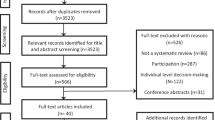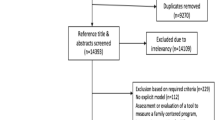Abstract
Typically seniors like others choose to avoid institutional care. However, when age-related infirmity requires it, they not only enter into the care of others, but they also do so as vulnerable members of society. As their frailty increases with age, so does their dependence on the professionals who care for them and on the enforcement of policies concerning their care. A qualitative case study involving seniors and their carers revealed that breaches of confidentiality, unprofessional behaviour and the non-enforcement of policy, continue to hide the physical and emotional abuse perpetrated by nursing and other staff on vulnerable consumers. Professional ethics, including at a corporate level, enforcing policy, protecting whistleblowers and creating reporting mechanisms for aged care researchers, are amongst the recommendations arising from this study.
Similar content being viewed by others
Notes
The Australian Nursing and Midwifery Council governs the professions of midwifery and nursing, and is thus the most appropriate professional body to turn to for the ethical behaviour of nursing professionals who work in aged care.
References
Allen, A. (2011). Privacy and medicine. In E. N. Zalta (Ed.), The Stanford encyclopedia of philosophy. Stanford, CA: Stanford University.
Australian Nursing and Midwifery Council. (2005). The national competency standards for the registered nurse. Dickson: ANMC. http://www.anmc.org.au.
Australian Nursing and Midwifery Council. (2008a). The code of ethics for nurses in Australia. Dickson: ANMC. http://www.anmc.org.au.
Australian Nursing and Midwifery Council. (2008b). The code for professional conduct for nurses in Australia. Dickson: ANMC. http://www.anmc.org.au.
Baker, S. M., Gentry, J. W., & Rittenburg, T. L. (2005). Building understanding of the domain of consumer vulnerability. Journal of Macromarketing, 25(2), 128–139.
Brown, E. (2012). Vulnerability and the basis of business ethics: From fiduciary duties to professionalism. Journal of Business Ethics. Accessed July 31, 2012, from http://www.springerlink.com/content/u48546646835lg0q/fulltext.html.
Burmeister, O. K. (2000). Applying the ACS code of ethics. Journal of Research and Practice in Information Technology, 32(2), 107–120.
Burmeister, O. K., Weckert, J., & Williamson, K. (2011). Seniors extend understanding of what constitutes universal values. Journal of Information, Communication & Ethics in Society, 9(4), 238–252.
Bynum, T. (2011). Computer and information ethics. In E. N. Zalta (Ed.), The Stanford encyclopedia of philosophy. Stanford, CA: Stanford University.
Department of Health & Ageing. (2007). Help with health. Prevention of elder abuse. Retrieved from http://www.agedcareaustralia.gov.au/internet/agedcare/publishing.nsf/Content/Prevention+of+elder+abuse.
Department of Health & Ageing. (2008). Compulsory reporting guidelines for approved providers of residential aged care. Woden: Office of Aged Care Quality & Compliance, Department of Health & Ageing.
Department of Health & Ageing. (2012). Aged care complaints scheme. Retrieved from agedcarecomplaints.govspace.gov.au.
Ekici, A., & Onsel, S. (2012). How ethical behavior of firms is influenced by the legal and political environments: A Bayesian causal map analysis based on stages of development. Journal of Business Ethics. http://www.springerlink.com/content/75436m72854p075r/fulltext.html.
Goldman, A. (2010). Social epistemology. In E. N. Zalta (Ed.), The Stanford encyclopedia of philosophy. Stanford, CA: Stanford University.
Kapp, M. B. (2008). Legal issues in dementia. International Journal of Risk & Safety in Medicine, 29(4), 91–103.
Lewin, B. (2007). Who cares about disabled victims of crime? Barriers and facilitators for redress. Journal of Policy and Practice in Intellectual Disability, 4(3), 170–176.
Nagy, S., Mills, J., Waters, D., & Birks, N. (2010). Using research in healthcare practice. Broadway: Lippincott, Williams and Wilkins Pty Ltd.
Not disclosed for review purposes, M. (2010). Submission to the productivity commission inquiry into caring for older Australians. Retrieved from http://www.pc.gov.au/__data/assets/pdf_file/0018/101628/sub253.pdf.
Quinn, M. J. (2011). Ethics for the information age (4th ed.). Frenchs Forest: Pearson.
Ringold, D. (2005). Vulnerability in the marketplace: Concepts, caveats, and possible solutions. Journal of Macromarketing, 25(2), 202–214.
Tannous, W. K. & Luo, K. (2006). Ownership of residential aged care facilities in Australia. In Macquarie economics research papers. Sydney: Macquarie University. Retrieved from http://www.businessandeconomics.mq.edu.au/our_departments/Economics/econ_research/2006/8_2006_Tannous_Luo.pdf.
Author information
Authors and Affiliations
Corresponding author
Rights and permissions
About this article
Cite this article
Bernoth, M., Dietsch, E., Burmeister, O.K. et al. Information Management in Aged Care: Cases of Confidentiality and Elder Abuse. J Bus Ethics 122, 453–460 (2014). https://doi.org/10.1007/s10551-013-1770-7
Received:
Accepted:
Published:
Issue Date:
DOI: https://doi.org/10.1007/s10551-013-1770-7




